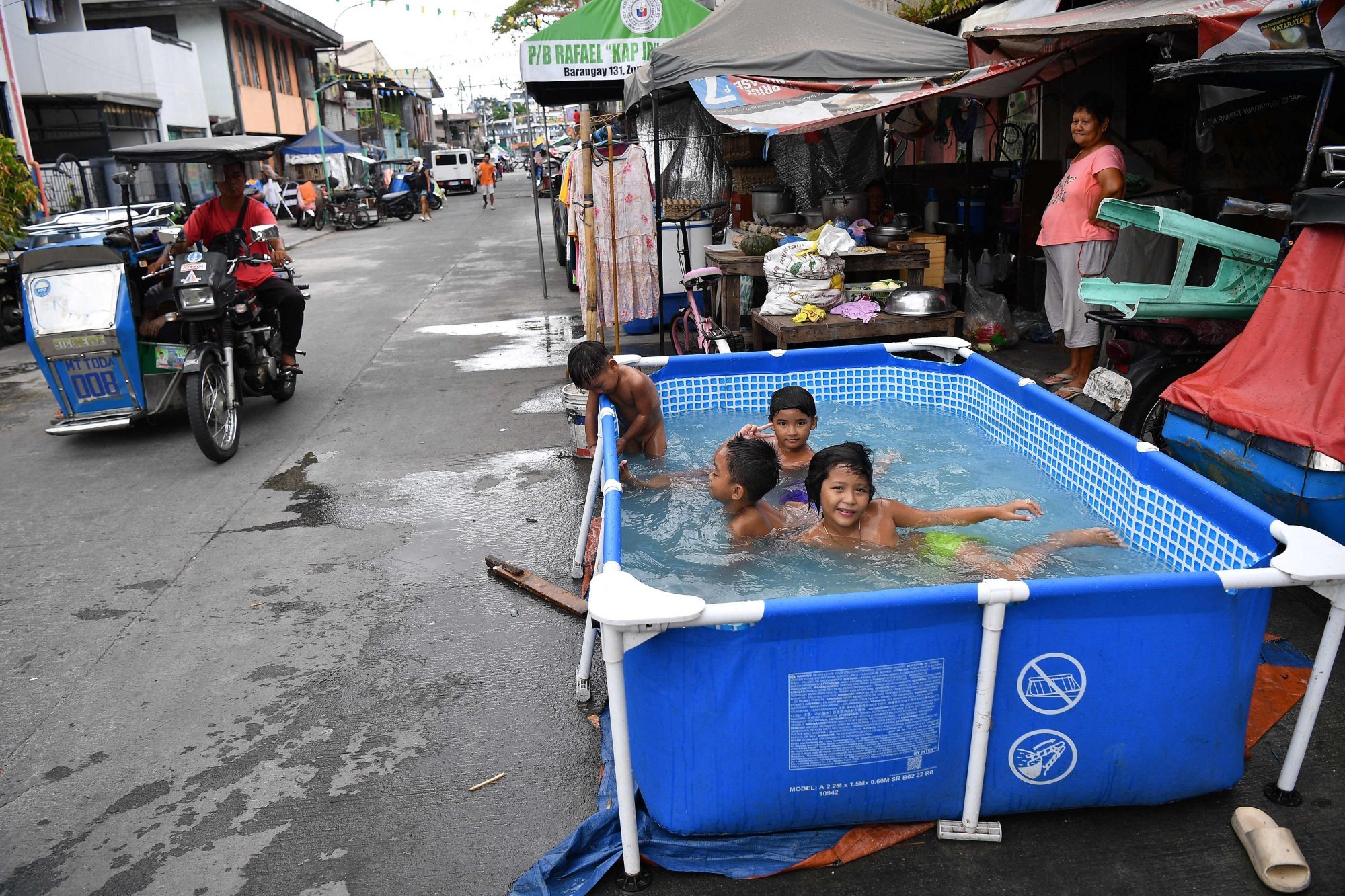In Cavite, more than 30km south of Manila, the provincial government declared a temporary shift to a compressed four-day work week in its offices beginning in late April. Employees are expected to report to work from 7am to 6pm Monday through Thursday until July 31.
Governor Jonvic Remulla noted Cavite had recorded extremely high temperatures with its heat index peaking at 48 degrees Celsius on April 24. The index measures the relative temperature to the human body, factoring in humidity.
Other local leaders have also issued similar four-day work-week orders for city hall and government workers in their vicinities. These exclude frontline workers such as emergency responders, traffic enforcers and health workers.
Public schools have suspended in-person classes nationwide due to the blazing heat as children adapt to alternative learning modes like take-home modules and asynchronous classes.
Conversations about adopting a compressed 40-hour work week – a 10-hour, four-day arrangement instead of working eight hours, five days a week – are not new in the Philippines. Socioeconomic planning secretary Karl Chua proposed this shift in 2022 after fuel prices spiked due to the Ukraine war.
Employers had the prerogative to adapt compressed four-day work weeks and other alternative arrangements even without a government order, the labour department said.
Other countries in the region are also pivoting to alternative work arrangements. In Singapore, workers will have the right to request four-day work weeks, staggered work timings and flexible work locations as part of a government bid to retain talent.
Virgel Binghay, a professor at the University of the Philippines’ School of Labour and Industrial Relations, said that compressed work weeks had some merit in mitigating the impact of intense heat on employees, as workers spent less time commuting.
Compressed work weeks might also help improve productivity and morale, while cost savings for employers and employees could include reduced transport expenses and overheads related to office spaces, he said.
Yet, Filipinos’ opinions on shifting to a shortened work week remain mixed, with some saying the proposal was “good on paper” but failed to account for workers’ realities, such as heavy traffic and the lack of efficient travel options.
“I pity us public commuters. I usually arrive home at 8.30pm and wake up at 4am to go to work. If my work hours increase, I might get home between 9 to 10pm,” one said on the online forum Reddit.
“If they implement this [four-day work week], they better fix public transport, too. We’re at a constant loss from heavy traffic,” another commented.
Still, others believe a shortened work week helps them offset certain costs and save more money.
“For a lot of people, not having to commute for an additional day is really a massive benefit. Even if they have to work slightly longer for four days, it’s compensated by not having to commute for the fifth,” one wrote.

Binghay said while some sectors and roles had already adopted flexible arrangements such as work-from-home schemes, changing work hours to a four-day week across the board would require a “significant cultural shift” and might encounter resistance from employers and even staff accustomed to a traditional schedule.
Other challenges that deter widespread adoption across the country include limited infrastructure and technology to sustain remote ways of work, especially in rural areas.
Binghay said the circumstances of countries such as Singapore were unique to the Philippines, highlighting the stark differences in economic structure and infrastructure, as well as technological accessibility.
“Singapore is a high-income economy, focusing heavily on technology, finance, and services, whereas the Philippines boasts a more diverse economy, including manufacturing, agriculture, and business process outsourcing.
“As a result, the feasibility and impact of implementing four-day work weeks could vary significantly between these economies.
“Singapore boasts highly developed infrastructure and widespread access to digital technology. In contrast, the Philippines may face challenges such as limited internet connectivity and uneven access to remote work tools, which may impact the feasibility of four-day work weeks,” he said.
Binghay added that countries such as Singapore might offer guidelines and incentives on how employers could make the transition, compared with the Philippines, which might have different approaches in addressing labour market challenges.
Social and cultural factors such as bearing familial responsibilities and commuting difficulties may also affect the feasibility and acceptance of compressed work weeks due to longer work hours, according to Binghay.
“Considering the importance of balancing work and personal life commitments in Filipino culture, any alterations to work schedules must carefully consider these factors.”
“Ultimately, a four-day work week in the Philippines required readiness from both employers and employees,” Binghay said.

